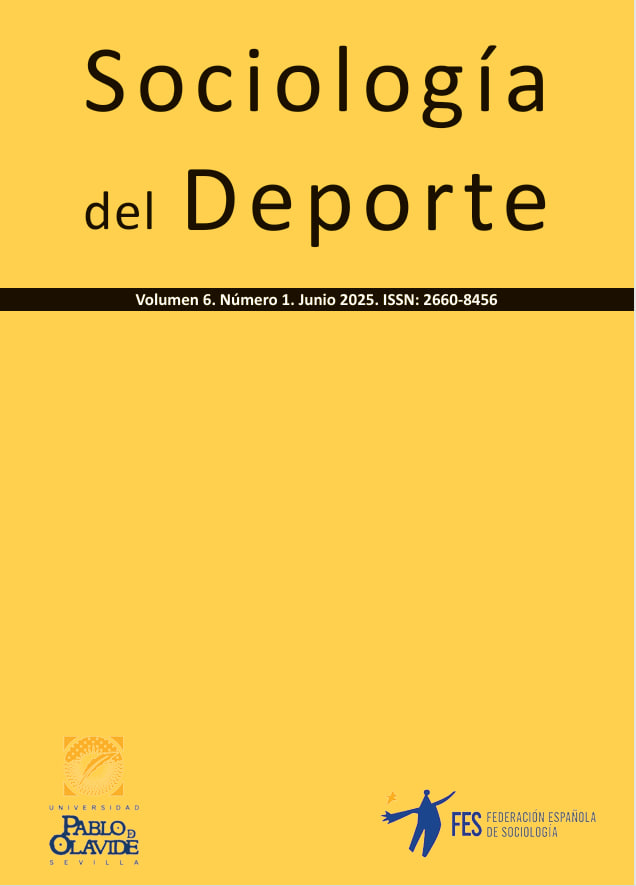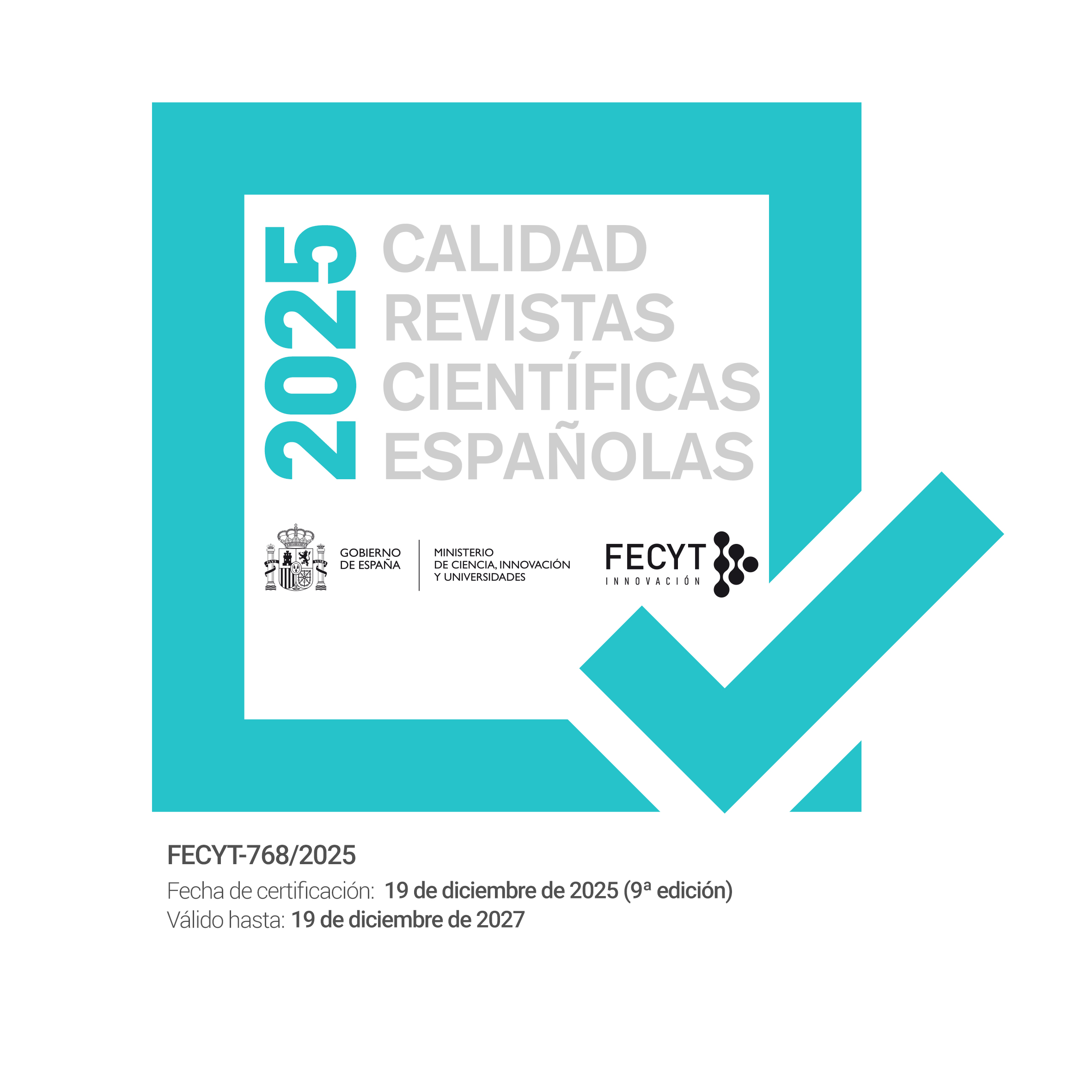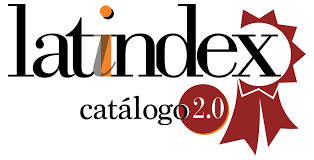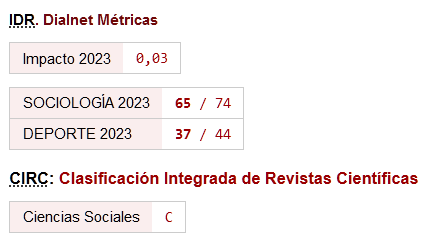Sport, inclusion, and social transformation in vulnerable urban contexts
the case of Lucentum Zona Norte (Alicante, Spain).
DOI:
https://doi.org/10.46661/socioldeporte.11876Keywords:
Sport, Social transformation, Social Inclusion, Community intervention, Children and adolescentsAbstract
Sport is increasingly recognized at the international level as a powerful
driver of social transformation, particularly in urban contexts marked by
inequality and cultural diversity. This article analyzes the case of the Lucentum
Zona Norte project, a socio-sportive initiative developed in a neighborhood
with high levels of socioeconomic inequality in the city of Alicante
(Spain), which uses basketball as a tool for community intervention,
the promotion of healthy habits, and the creation of social bonds. From
the perspective of applied sociology, the study adopts an exploratory and
longitudinal methodological approach based on a single case study. The
research strategy combines both qualitative and quantitative techniques:
participant observation, interviews, the application of validated scales and
social impact indicators, as well as the systematic monitoring of participation.
In this preliminary phase, sociodemographic data on the sample (n=30)
are presented, along with attendance patterns crossed by gender, age, and
nationality. The results show high levels of female participation, sustained
engagement during adolescence, and daily coexistence among young people
from diverse backgrounds. These findings allow us to interpret sport
not merely as a physical space, but as a relational environment that fosters
recognition, belonging, and collective identity. The article concludes by highlighting
the potential of sport as a strategic tool for intervening in and
transforming communities.
Downloads
References
Ayuntamiento de Alicante. 2006. Estudio barrios vulnerables Zona Norte -Alicante-. Servicio de Coordinación de Proyectos.
Ayuntamiento de Alicante. 2020. Diagnóstico territorial: barrios Zona Norte de Alicante. Servicio de Coordinación de Proyectos.
Bourdieu, Pierre. 1986. "The Forms of Capital." En Handbook of Theory and Research for the Sociology of Education, editado por J. Richardson, 241-258. Nueva York: Greenwood.
Burnett, Cora. 2015. "Assessing the Sociology of Sport: On Sport for Development and Peace". International
https://doi.org/10.1177/1012690214539695
Review for the Sociology of Sport, 50 (4-5): 385-390.
Castañer, Marta, y Oleguer Camerino. 2001. Fundamentos de la iniciación deportiva. Barcelona: INDE.
Coakley, Jay. 2009. Sports in Society: Issues and Controversies. New York: McGraw-Hill.
Coakley, Jay. 2011. "Youth Sports: What Counts as 'Positive Development'?". Journal of Sport and Social Issues, 35 (3): 306-324.
https://doi.org/10.1177/0193723511417311
Coalter, Fred. 2013. Sport for Development: What Game Are We Playing? Londres: Routledge.
https://doi.org/10.4324/9780203861257
Consejo Superior de Deportes (CSD). 2019. El deporte como herramienta de integración social en España.
Crenshaw, Kimberlé. 1991. "Mapping the Margins: Intersectionality, Identity Politics, and Violence Against Women of Color". Stanford Law Review, 43 (6): 1241-1299.
https://doi.org/10.2307/1229039
Creswell, John W., y Vicki L. Plano Clark. 2018. Designing and Conducting Mixed Methods Research. Thousand Oaks, CA: SAGE.
Cárdenas, Javier. 2018. Investigación cuantitativa. Trandes.
Darnell, Simon C. 2010. "Power, Politics and 'Sport for Development and Peace': Investigating the Utility of Sport for International Development". Sociology of Sport Journal, 27 (1): 54-75.
https://doi.org/10.1123/ssj.27.1.54
Elias, Norbert y Eric Dunning. 2015. Deporte y ocio en el proceso de la civilización. Madrid: Basil Blackwell
Publishing Ltd.
Esteban, Mari Luz. 2014. Crítica del pensamiento amoroso. Barcelona: Ediciones Bellaterra.
Freire, Paulo. 1970. Pedagogía del oprimido. México: Siglo XXI Editores.
Fundación Barça. 2022. FutbolNet: Evaluación de impacto en comunidades vulnerables.
Fundación LaLiga. 2020. Fútbol+: Un modelo de deporte educativo y social.
García Ferrando, Manuel. 2006. Posmodernidad y deporte: Entre la individualización y la masificación. Madrid: Centro de Investigaciones Sociológicas.
Gasol Foundation. 2024. Nivel socioeconómico y estilos de vida de la población infantil y adolescente en España. Estudio PASOS 2022-2023. Barcelona: Gasol Foundation Europe.
Giulianotti, Richard. 2015. Sport: A Critical Sociology. Cambridge: Polity Press.
Haraway, Donna. 1991. Simians, Cyborgs, and Women: The Reinvention of Nature. Nueva York: Routledge.
Hargreaves, Jennifer. 1994. Sporting Females: Critical Issues in the History and Sociology of Women's Sports. Londres: Routledge.
Hill Collins, Patricia. 2000. Black Feminist Thought: Knowledge, Consciousness, and the Politics of Empowerment. Nueva York: Routledge.
Instituto Nacional de Estadística (INE). 2022. Atlas de distribución de renta de los hogares. https://www. ine.es/experimental/atlas/experimental_atlas.htm
Ispizua, Maite. 2003. "Convivencia e interculturalidad: el deporte como instrumento". Revista de Estudios
de Juventud, 62: 47-59.
Izcara Palacios, Simón Pedro. 2014. Manual de investigación cualitativa. México: Argumentos.
Llopis-Goig, Ramón. 2024. "La práctica deportiva en la sociedad española: Pautas, tendencias y evolución reciente". Panorama Social, 40: 9-21.
Markula, Pirkko. 2003. "The Technologies of the Self: Sport, Feminism and Foucault". Sociology of Sport Journal 20 (2): 87-107.
https://doi.org/10.1123/ssj.20.2.87
Mercy Corps. 2018. The Impact of a Sports for Development Program on Youth Employment in Liberia. Innovations for Poverty Action.
Messner, Michael A. 2002. Taking the Field: Women, Men, and Sports. Minneapolis: University of Minnesota Press.
Moscoso, David. y Raúl Sánchez García. 2023. Sociología del deporte. Madrid: Dykinson.
Moscoso, David y Víctor Muñoz. 2012. Deporte, inclusión y diversidad social. Sevilla: Ediciones Akal.
Moscoso, David. 2012. "Deporte, inclusión y diversidad social". Anduli. Revista Andaluza de Ciencias Sociales, 11: 13-19.
Putnam, Robert D. 2000. Bowling Alone: The Collapse and Revival of American Community. New York: Simon & Schuster.
https://doi.org/10.1145/358916.361990
Red Deporte. 2021. Inclusión social a través del deporte en España.
Rimi, Zineb. 2021. Social Basket. Escuela Zineb.
Stake, Robert E. 1995. The Art of Case Study Research. Thousand Oaks, CA: Sage.
Tobarra Rodrigo, Estrella. 2024. Una aproximación sociológica desde el deporte al capital social comunitario en barrios vulnerables. El caso de Colonia Requena en Alicante (España). Repositorio Institucional de la Universidad de Alicante (RUA).
UK Government. 2020. Positive Futures Evaluation Report. https://www.gov.uk/government/publications/foreign-commonwealth-and-development-office-fcdo-annual-evaluation-report-2020-to-2021/annual-evaluation-report-2020-to-2021
UK Government. 2021. Chances Programme: Social Impact Bond Outcomes. https://golab.bsg.ox.ac.uk/knowledge-bank/case-studies/chances/
UNESCO. 2022. Girls' Participation in Sport: Barriers and Solutions. https://www.unesco.org/en/articles/unesco-report-women-and-girls-access-sportstill-lagging-far-behind
UNESCO. 2024. The Social Impact of Sport: Unlockingthe Potential of Sport to Drive Social Transformations.
Yin, Robert K. 2018. Case Study Research and Applications: Design and Methods. 6th ed. Thousand Oaks, CA: Sage.

Downloads
Published
How to Cite
Issue
Section
License
Copyright (c) 2024 Alicia Martinez Moreno, Raúl Ruiz-Callado

This work is licensed under a Creative Commons Attribution-NonCommercial-ShareAlike 4.0 International License.









